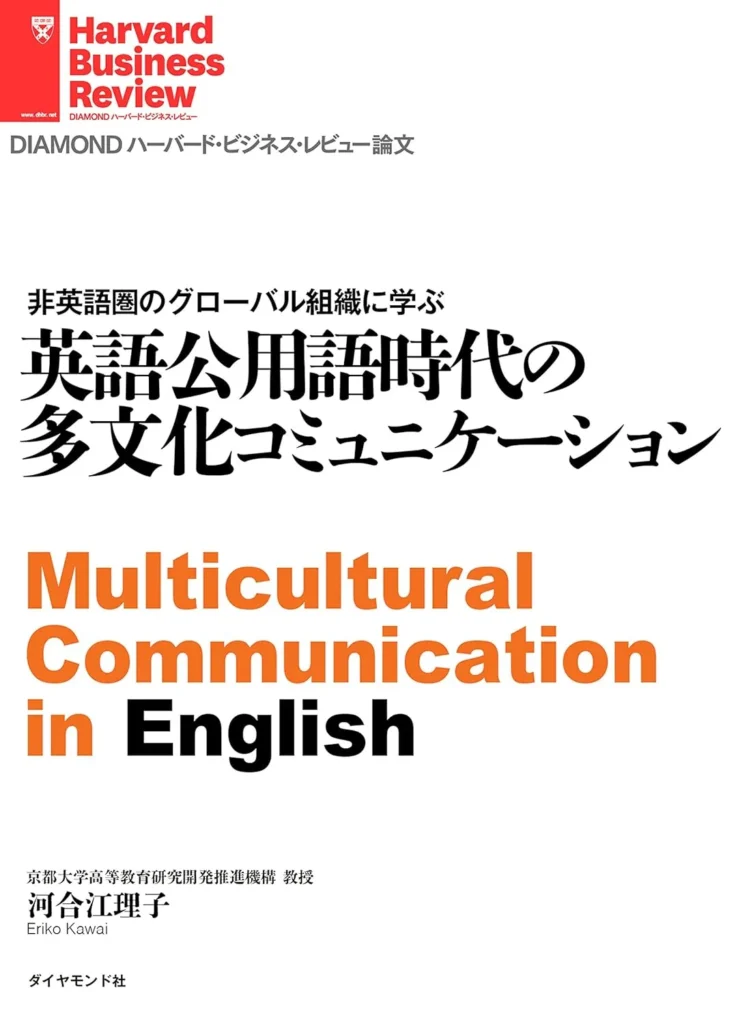
英語公用語時代の多文化コミュニケーション by 河合江理子 (Multicultural Communication in English)
The Book in 3 Sentences
- This paper points out how Japan lags behind (as of 2012, the year in which the paper was published) the western countries in communicating globally.
- The author finds the reason in the highly contextual nature of Japanese culture.
- The author finishes by stating that the ability to speak in English with a high sense of clarity, conciseness, and logic is what makes a successful global talent.
Impressions
How Did I Discover It?
- I was stuck at work failing to communicate smoothly with my boss about task requirements, expectations, questions & answers, etc. Then, I remembered I had a similar struggle at a prior job as well. This was a chance to highlight the cause-effect behind the issues which is miscommunications in English, the official language of the team I belonged to / neither I nor my communication partners were native to.
- I discovered this paper via Google searching for “office language issues” in hopes to find something useful to be a better communicator myself and reduce my stress in communicating at work.
Who Should Read It?
Anybody who ;
- desires to be a better communicator.
- desires to or is working in a global team.
- desires to improve their English.
How the Book Changed Me
I was expecting this reading would provide me with an objective perspective towards the hardship in communications I was experiencing in my career, and I feel that it did. The author states that successful communications build on top of the ability to be clear, concise, and logical about the point you are trying to get across. Although there is a limit to how much you can expect the other to speak to you in such a sophisticated manner, I can always train myself to ask proper questions to fill the gap to result in better communication.
Being bilingual in Japanese and English, I see where Japanese fails to make sense in English through direct translation. There are a couple of spots, but based on my experience in office scenes (talking to colleagues, your boss, etc.), it is the degree to how distinctively subjects, verbs, and objects are used in one’s forming sentences that most affects communications.
In Japanese, the high contextual culture allows sentences to be formed without completing all those three elements — some lack the subject, some lack the verb, the others lack the object. It is rather dependent on the listener to assume the contents left unsaid.
However, as the author says, in our global society, in your global team, we should not assume any “common sense” from our communication partners when constructing our messages — what clearly lies between the lines can often be clueless for someone of a different background.
Considering the above nature of the Japanese language and my personal experiences of failed communication, I think the following 2 points are especially critical when speaking to others.
- Be clear about “who” and “what”
- “No” in Japanese is “yes” in English and vice versa
As for 1, depending on which perspective to take, the content of the sentence can mean something completely different. I recall roughly 90% of the following questions when I’m speaking with others is “who is/does it?” or “what is/does it?”, and it can save much work if these are made clear from the beginning.
As for 2, I often need to double-check when I get yes/no replies from Japanese natives because their replies can mean the opposite. For example, if you ask “you don’t have a computer, right?” to someone who does not indeed have a computer, in the Japanese sense he/she is supposed to answer “yes” to mean “no, I don’t.” His/her answering “yes” is “yes, you are right (that I do not have a computer).” This mistake can cause critical damage if it took place in a meeting with external clients or your higher-ups.
My Top 3 Quotes
- バックグラウンドが違う人材が集まれば集まるほど、意思疎通の重要性は高まる。”Communication becomes more critical as the team gets more diverse in its background.”
- 日本は典型的なハイ・コンテクスト文化であり、「いちいち言葉で伝えなくても、相手の意図を察し合うことでコミュニケーションが成り立つ」。”Japan has a typical high-contextual culture, where communications do not always require words but require the ability to read between the lines. “
- 進展するグローバル社会で求められているのは、英語で言いたいことを明瞭に簡潔に論理的に説明する能力である。正しくきれいに話すことは二の次である。”In our increasingly globalized society, we need the ability to be clear, concise, and logical in our messages. Correctness in its grammar and its pronunciation should only be the next matter.”